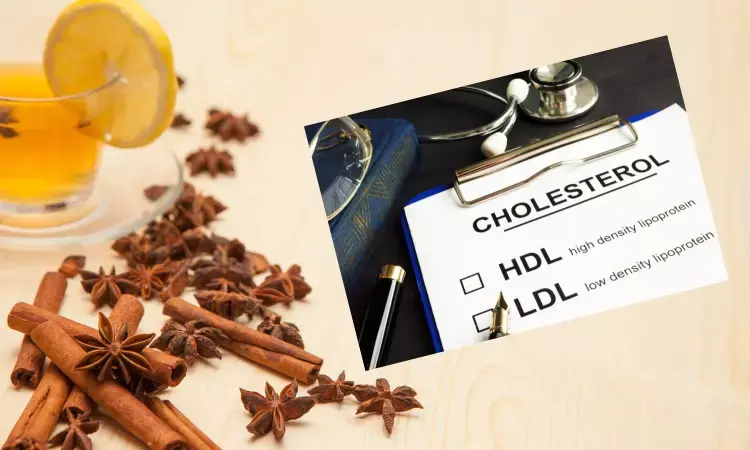- Home
- Medical news & Guidelines
- Anesthesiology
- Cardiology and CTVS
- Critical Care
- Dentistry
- Dermatology
- Diabetes and Endocrinology
- ENT
- Gastroenterology
- Medicine
- Nephrology
- Neurology
- Obstretics-Gynaecology
- Oncology
- Ophthalmology
- Orthopaedics
- Pediatrics-Neonatology
- Psychiatry
- Pulmonology
- Radiology
- Surgery
- Urology
- Laboratory Medicine
- Diet
- Nursing
- Paramedical
- Physiotherapy
- Health news
- Fact Check
- Bone Health Fact Check
- Brain Health Fact Check
- Cancer Related Fact Check
- Child Care Fact Check
- Dental and oral health fact check
- Diabetes and metabolic health fact check
- Diet and Nutrition Fact Check
- Eye and ENT Care Fact Check
- Fitness fact check
- Gut health fact check
- Heart health fact check
- Kidney health fact check
- Medical education fact check
- Men's health fact check
- Respiratory fact check
- Skin and hair care fact check
- Vaccine and Immunization fact check
- Women's health fact check
- AYUSH
- State News
- Andaman and Nicobar Islands
- Andhra Pradesh
- Arunachal Pradesh
- Assam
- Bihar
- Chandigarh
- Chattisgarh
- Dadra and Nagar Haveli
- Daman and Diu
- Delhi
- Goa
- Gujarat
- Haryana
- Himachal Pradesh
- Jammu & Kashmir
- Jharkhand
- Karnataka
- Kerala
- Ladakh
- Lakshadweep
- Madhya Pradesh
- Maharashtra
- Manipur
- Meghalaya
- Mizoram
- Nagaland
- Odisha
- Puducherry
- Punjab
- Rajasthan
- Sikkim
- Tamil Nadu
- Telangana
- Tripura
- Uttar Pradesh
- Uttrakhand
- West Bengal
- Medical Education
- Industry
Cinnamon addition to food may lower triglycerides and LDL cholesterol

Cinnamon is as a popular aromatic spice and flavouring additive in a wide variety of cuisines, sweet and savoury dishes, breakfast cereals, snack foods, bagels, teas, hot chocolate and traditional foods.
Quiet a few research shows cinnamon may be good for people with diabetes. It may also lower cholesterol in people with diabetes. However it’s a debatable as many of the studies don’t indicate what type of cinnamon was used or have other problems that make their findings uncertain. Lack of research on the dose-response relationship between cinnamon and glycolipid indicators in type 2 diabetic patients might be one of the reasons for uncertain results.
A recent study in Nutrients journal Cinnamon addition in diet may be beneficial in lowering triglyceride (TG) and low-density lipoprotein cholesterol (LDL-C) levels while enhancing high-density lipoprotein cholesterol (HDL-C) levels, and the dosage of the intervention was an important factor in influencing the TG and LDL-C levels.
Researchers conducted the dose-response meta-analysis to explore the effect of the cinnamon intervention on glycolipid metabolism. They conducted a comprehensive database search for literature published before November 2022. Nonlinear models were used for dose-response relationship analysis.
The key findings of the study are
• They identified that a cinnamon intervention was effective in controlling triglyceride (TG) levels (mean difference = -7.31; 95%CI: -12.37, -2.25, p = 0.005) and low-density lipoprotein cholesterol (LDL-C) levels (mean difference = -6.78; 95%CI: -11.35, -2.22, p = 0.004) in type 2 diabetic patients.
• It also was able to increase high-density lipoprotein cholesterol (HDL-C) levels in patients with type 2 diabetes (mean difference = 1.53; 95%CI: 1.01, 2.05, p < 0.001).
• However, the cinnamon intervention had no significant effect on the level of fasting blood glucose, glycated hemoglobin (HbA1c), or total cholesterol (TC) levels.
• They found a significant effect of the cinnamon intervention dose on the TG level (p-nonlinearity = 0.016) and LDL-C (p-nonlinearity = 0.019) in the nonlinear dose-response analysis.
• In the subgroup analysis, we found a hypoglycemic effect with the cinnamon dose ≤1200 mg (mean difference = -11.1, 95%CI: -14.64, -7.58, p < 0.001).
Yu and team concluded that “Cinnamon intervention may be beneficial in lowering TG and LDL-C levels while enhancing HDL-C levels, and the dosage of the intervention was an important factor in influencing the TG and LDL-C levels.”
Reference: Yu, Tingqing, et al. "The Effect of Cinnamon On Glycolipid Metabolism: a Dose-Response Meta-Analysis of Randomized Controlled Trials." Nutrients, vol. 15, no. 13, 2023.
MSc. Neuroscience
Niveditha Subramani a MSc. Neuroscience (Faculty of Medicine) graduate from University of Madras, Chennai. Ambitious in Neuro research having worked in motor diseases and neuron apoptosis is interested in more of new upcoming research and their advancement in field of medicine. She has an engrossed skill towards writing and her roles at Medical dialogue include Sr. Content writer. Her news covers new discoveries and updates in field of medicine. She can be reached at editorial@medicaldialogues.in
Dr Kamal Kant Kohli-MBBS, DTCD- a chest specialist with more than 30 years of practice and a flair for writing clinical articles, Dr Kamal Kant Kohli joined Medical Dialogues as a Chief Editor of Medical News. Besides writing articles, as an editor, he proofreads and verifies all the medical content published on Medical Dialogues including those coming from journals, studies,medical conferences,guidelines etc. Email: drkohli@medicaldialogues.in. Contact no. 011-43720751


